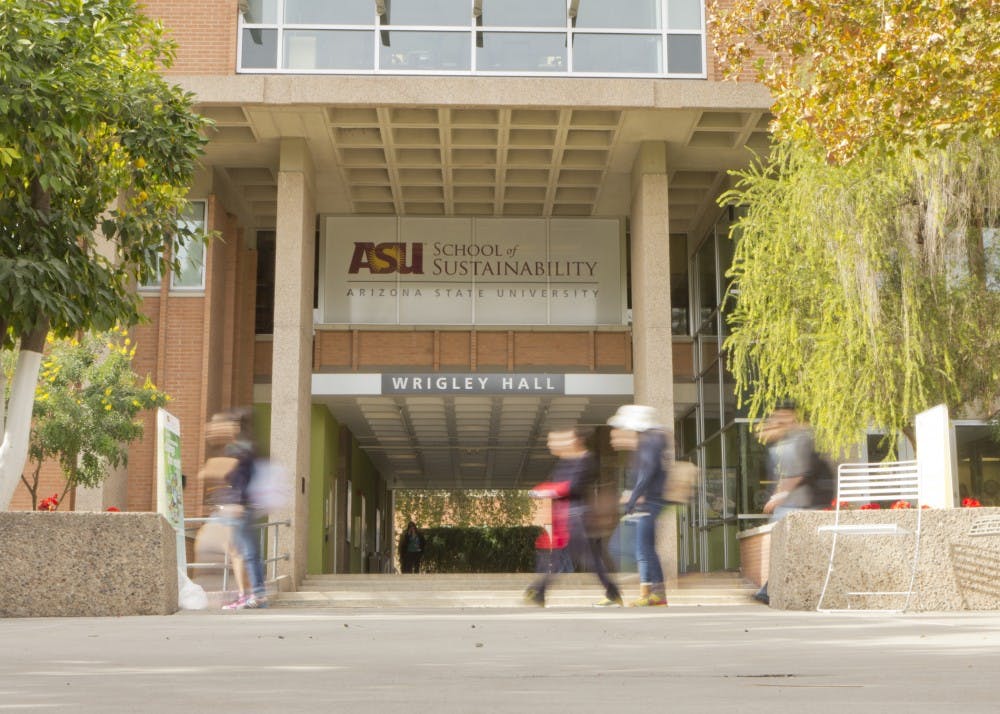 Students walk in front of the School of Sustainability on the Tempe campus on Dec. 1, 2014. (Emily Johnson/The State Press)
Students walk in front of the School of Sustainability on the Tempe campus on Dec. 1, 2014. (Emily Johnson/The State Press)As an attendee of the ASU Global Institute of Sustainability’s recent lecture by columnist Thomas Friedman, I had hoped for what had been billed as an enlightening discussion on the intersection of environmentalism and international political stability. Unfortunately, it quickly became clear that Friedman’s interest in sustainability is in its ability to be used as a metaphor for recent developments in the world of high finance and Middle East politics rather than on the gravely important subject of what defines a sustainable culture and how we may eventually create one. Obviously a lecture can’t be all things to all people so I am willing to admit that what was a fairly trite and superficial analysis of global sustainability to me may have been revelatory for other members of the audience. But, for an institution that aspires to be on the cutting edge of environmental thinking, ASU could do so much better.
I wouldn’t have left the lecture as disappointed if Friedman had not mentioned several other thinkers making important and concrete progress in the realm of sustainability. I am thinking of Wes Jackson of the Land Institute, whose work in perennial grains could one day produce food reliably with fewer inputs, in harsher climates, all while safeguarding one of our most precious resources, soil. I am thinking of Michael Braungart, co-author of "Cradle to Cradle," a book which proposes the possibility of more effective materials recycling in which every part of our industrially produced goods could feasibly be used to make entirely new products, thereby reducing waste and the demand for raw natural resources. The pragmatic nature Jackson and Braungart’s work exemplify the “sustainable values” which Friedman only alluded to.
If there truly is no longer a “later” for environmentalism as Mr. Friedman asserted in his conclusion, ASU owes it to its audiences to showcase those that are working to make sustainability more than a buzzword.
Nathan Alan
School of Sustainability
The Julie Ann Wrigley Global Institute of Sustainability




